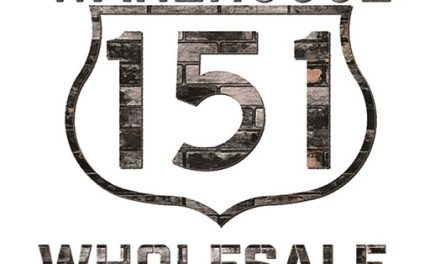By Pat Moran
The process of completing a credit card transaction has become an ingrained part of our business culture. Since the 1970s, when the emergence of magnetic strip credit cards revolutionized how we purchase goods and services, electronic payments have become simpler and more accessible, opening up new business opportunities and attracting new customers while decreasing the burdens and losses businesses face when depending on cash and paper checks.
As payment technology advances, criminals continually develop new ways to attack secure payment systems. However, payment technology providers and businesses will soon be introducing a new generation of credit cards in the United States that will significantly reduce fraud by making it nearly impossible to create counterfeit cards. Commonly referred to as an EMV chip card, this new payment technology uses embedded smart chips that encrypt, or tokenize, customers’ data differently for each transaction. This means that criminals can’t capture valid information to pose as a customer and complete an unauthorized purchase.
For this new system to work, and to ensure business owners protect themselves and their customers, businesses will need to upgrade the equipment they use for processing card payments with new EMV point-of-sale terminals. These new smart card systems cost between $200 and $1,500 per unit, and can be a major expense for many small businesses. Early indications are that processors will offer a variety of incentives, costs and plans for these new terminals. Some may include free and discounted terminals as part of a larger package of services, while some will charge market-rates and price other services at a relative discount. Business owners will be well-served to explore the offers available in their area and compare notes with peers before locking in an agreement. However, if owners plan ahead, the security and long-term health of their businesses, as well as the ability to maintain consumer confidence, far outweigh the cost.
The 2012 National Cyber Security Alliance’s National Small Business Study found that if a small business’s system is hacked, there is a 60 percent chance that business will close within the next six months due to a loss of consumer confidence. These types of data breaches are happening more often with small businesses as large retailers have generally upgraded their basic security and criminals have turned to trolling for default passwords and unsecured servers among local establishments. Symantec, an information security firm, detected a 300 percent rise in these attacks between 2011 and 2013, and predicts they will continue to grow without a change in technology.
By embracing cutting-edge EMV technology, businesses will stay competitive in the marketplace and drastically lower their risk of chargebacks and fraud. Already widely used in Europe, EMV technology is responsible for a significant decrease in the type of fraud that has been increasing the United States—largely because other world markets migrated to EMV first and this is the last major market vulnerable to counterfeit cards. In fact, the United Kingdom reported a 63 percent decrease in credit and debit card fraud in the six years since businesses began implementing the technology.
Small businesses face countless challenges each and every day to serve their customers and stay profitable. Stepping beyond 1970s’ technology and embracing proven technology that promises to decrease the threat of fraud should be an easy choice. With some due diligence and smart shopping, small business owners will be able find the right set of services and systems to move their businesses forward. It will protect their profits for the long-term and help them show customers they care about their security and well-being.
Pat Moran is a payments executive and advisor with specific areas of expertise in payments economics, interchange management, merchant contracting, as well as product development and deployment. Mr. Moran is currently working with several private VC backed firms to help them develop their payments related business strategies including MineralTree a SMB payables solution provider.









